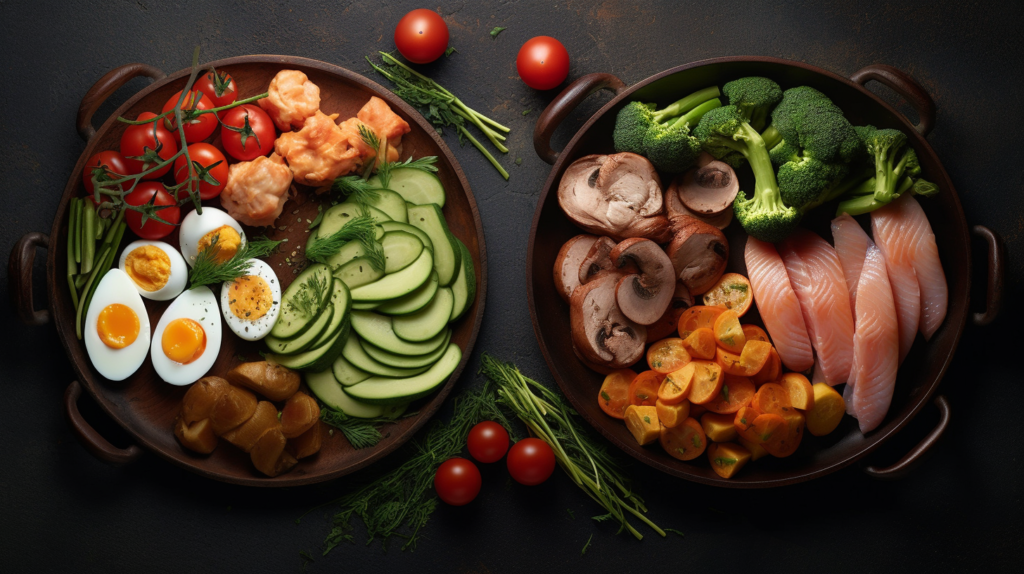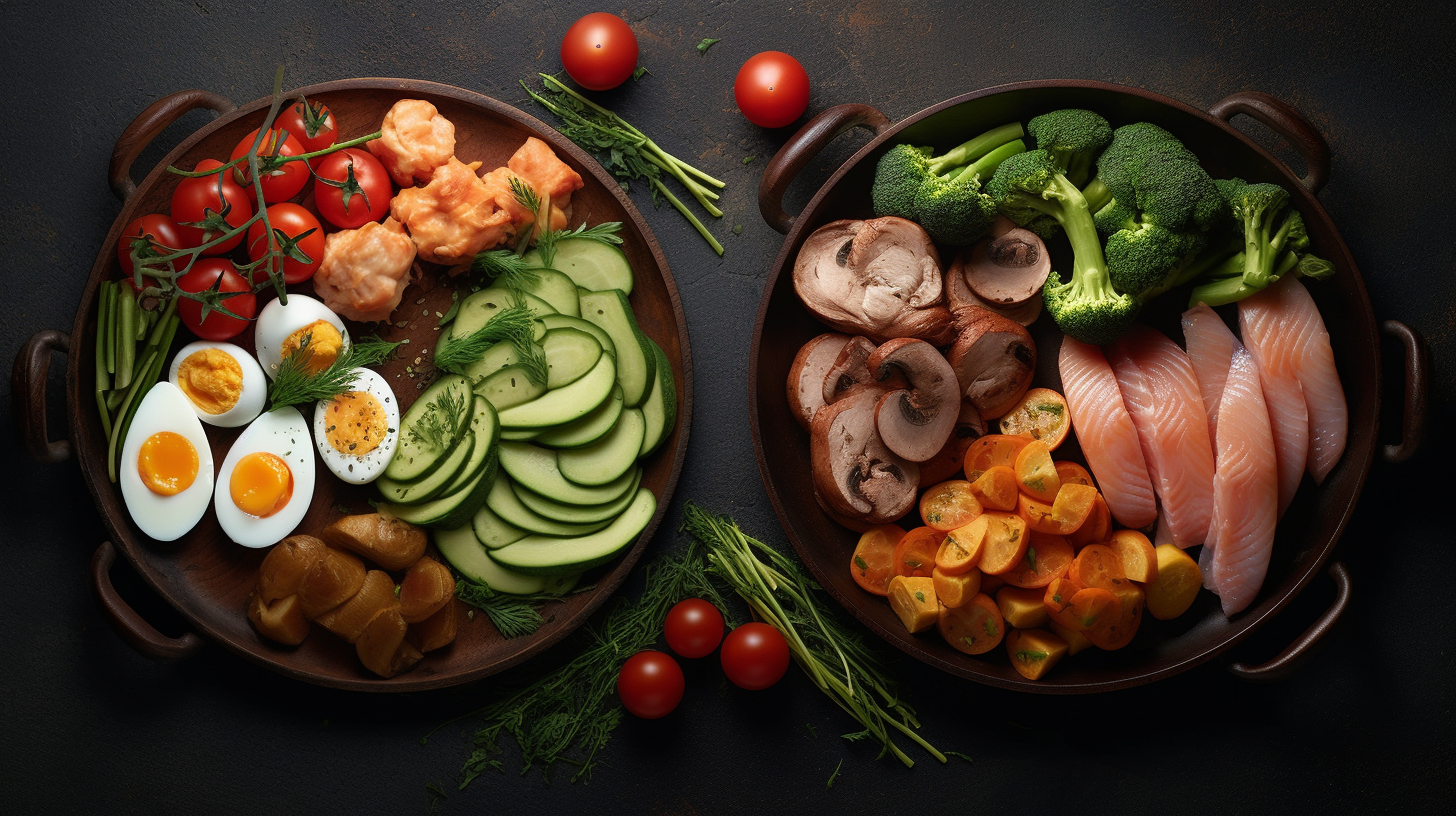In recent years, the world of dieting has created two major powerhouses; enter the Whole 30 and the Keto diets. Both of these diet plans have helped countless people shed pounds and get healthy, but is one really better than the other? In this article, we’ll take a deep dive into both of these diets and pit them against each other in a diet showdown! Get ready to find out who really deserves the crown as king of diet plans.
I. Enter the Arena: The Whole 30 vs. Keto
Are you looking to make some positive diet changes in the new year? You may have heard of two of the most popular diet trends: The Whole 30 and the Ketogenic diet, but which one should you go for? Let’s take a look at the pros and cons of each to get the big picture.
- The Whole 30:
The Whole 30 regime is great for those who want a diet that encourages healthy, wholesome food as well as helping to reset your relationship with food. For 30 days, you’ll be restricting yourself from unhealthy processed foods, sugar, grains, soy and dairy. The diet can be kept up long-term if you love the results and you don’t have to worry about counting calories or number crunching.
- The Keto diet:
The Keto diet is a more extreme approach to dieting. It involves cutting out carbohydrates and loading up on fat instead. This will kickstart your body into a state of ketosis, where your body is burning fat for fuel, resulting in rapid weight loss. The Keto diet also has some added medical benefits thanks to it’s anti-inflammatory nature, but you should speak to your doctor before trying it out.
II. Battle of the Macronutrients
When it comes to our daily diet, our bodies need a balanced proportion of 3 of the macronutrients: carbohydrates, proteins, and fats. All three play an essential role in keeping a healthy diet, the right combination of which can nurture and keep the body in an optimal state of well-being.
Carbohydrates should be the biggest contributor to our daily needs, as they provide our bodies with energy and are found in fruits, vegetables, legumes, grains, and dairy products. Proteins should come second, as they help build and repair tissues. Lean meats, eggs, nuts, beans, and dairy foods are all great sources of protein. Last but not least, fats should make up the last portion of the macronutrients, with healthy fats from avocados, nut butters, and fish being some of the finest choices.
- Carbohydrates: Fruits, vegetables, legumes, grains, dairy products
- Proteins: Lean meats, eggs, nuts, beans, dairy foods
- Fats: Avocados, nut butters, fish
III. Pros and Cons of Both Diets
The keto and intermittent fasting diets are both popular for many individuals looking to make changes to their lifestyles. Before choosing one or the other, it’s important to understand the advantages and disadvantages of each.
The biggest benefit of the keto diet is that it encourages you to consume a large amount of healthy fats. Additionally, your body is able to quickly produce energy from fats in place of carbs. The keto diet also has benefits for mental clarity and weight loss. However, it can have some negative effects such as constipation, insomnia, irritability, and nausea. Therefore, if you decide to try the keto diet, it is important to ensure that you are including in lots of vegetables and nutrient-rich foods.
Intermittent fasting is known to have short and long-term benefits to both physical and mental performance. In contrast to the keto diet, intermittent fasting helps to increase metabolism, regulate blood sugar levels, and enhance energy levels. It can also be good for heart health and help with weight management, cognitive functioning and mental clarity. Though much of the research surrounding this diet is promising, it can be difficult to stick to long-term and may even be more difficult for those who are used to eating multiple meals throughout the day.
- Keto diet:
- High fat consumption
- Mental clarity and weight loss
- Possible side effects such as constipation, insomnia, irritability, and nausea
- Intermittent Fasting:
- Increase metabolism and regulate blood sugar
- Enhanced energy levels and good for cardiovascular health
- Can be hard to maintain long-term
IV. Declaring a Diet Showdown Victor
- At the end of the challenge, it’s time for the ultimate declaration of the victor.
- The whole process of the diet showdown culminates to this very moment.
The moment of truth arrives as friends await anxiously to hear the result of this intense diet showdown. It was a tough four weeks for everyone on the journey, as a healthy transformation of body and mind took place. Along the way, the contestants shared inspiring stories and insights, lifting each others’ spirits and inspiring even more determination.
The judges must now put forth the name of the ultimate victor. With a deep sense of admiration and appreciation, one person’s hard work has been acknowledged and rewarded. As their vision of a healthier self become clear, they can now proudly carry themselves forward in the world as a physical embodiment of dedication and will.
No matter which of these diets you try, moderation really is key. Commit to a healthy lifestyle full of variety, and you’ll find yourself empowered to look good, feel great, and enjoy holistic nutrition in the long run. So let the diet showdown begin!

